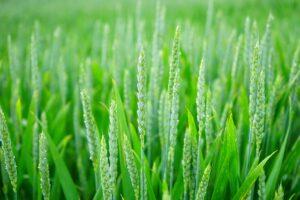Agrometeorology: cool weather slows down plant development
The cool weather is not favorable for agriculture, and although some precipitation will arrive over the weekend, it is far from as much as the thirsty plants in the Great Plain would need – HungaroMet Zrt. wrote in its agrometeorological analysis on Thursday.

(Photo: Pixabay)
According to the analysis, cold, dry air masses have arrived in the Carpathian Basin with a northerly flow in the past week, and overall, no precipitation has fallen at all in a significant part of the country, at most less than one millimeter. Since mid-April, 30-70 millimeters of rain have fallen in most of Transdanubia, in the northern part of the country and in the western and northern parts of the Great Plain, but in the central and eastern parts of the Great Plain, 20 millimeters and in some places not even 10 millimeters have fallen, which is half, in some cases a quarter of the usual amount at this time. Summer crops are in moderate to severe drought, while deeper-rooted autumn crops are in mild to moderate drought, they wrote.
The temperature has been several degrees below the long-term average since the beginning of last week, with the maximums remaining below 20 degrees Celsius on most days and below 15 degrees Celsius in permanently overcast and rainy regions, while ground frosts occurred in several places on clear, calm nights, and in frosty areas the air cooled slightly below freezing even at a height of two meters.
The autumn crops are in good condition in the rainier areas, rapeseed is at the end of flowering, and wheat has already appeared in the ears, but in the parts of the Great Plain with a lack of precipitation, they are in poor condition and urgently need abundant rain. The top layer of the soil in the Great Plain is almost bone-dry, so the situation of corn and sunflowers is critical. The cold period that has lasted almost two weeks is not conducive to the development of plants either. They noted that after the significant decrease and weakening of the bee population in winter, the acacia has frozen in many places in the country, where intact buds remained, the trees are currently blooming, but the secondary flowers that develop in the place of the frozen buds have not yet opened. Due to the cold, on the one hand, flowering is prolonged, but hardly any nectar is produced, and on the other hand, the bees are unable to collect. In the orchards, the period of protection against frost is still not over, and the morning temperature was critically low several times in the Great Plain. According to the forecast, the weather will remain cooler than usual at this time of year, but showers and thunderstorms are expected in many places.
MTI
Related news
The government provides significant funding to support the development of crop dryers
🎧 Hallgasd a cikket: Lejátszás Szünet Folytatás Leállítás Nyelv: Auto…
Read more >Related news
40 secure jobs, sustainable solutions – new BURGER KING® in Csepel
🎧 Hallgasd a cikket: Lejátszás Szünet Folytatás Leállítás Nyelv: Auto…
Read more >








